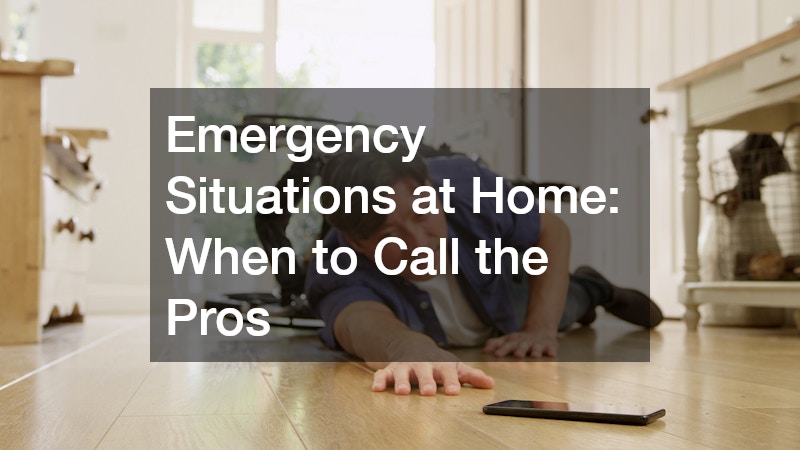Every homeowner faces unexpected emergencies at some point—whether it’s a broken air conditioner in the middle of summer, a sudden pest infestation, or even an injury that requires immediate care. The challenge lies in knowing when to handle the issue yourself and when to call a professional. Acting too late or trying to fix something beyond your expertise can turn a small inconvenience into a costly or dangerous situation.
Understanding the right time to contact professionals—from AC companies and pest control services to chiropractors and orthopedic clinics—can save you time, money, and stress. Let’s explore the most common home emergencies and when calling the pros is the smartest move.
1. HVAC Emergencies: When Comfort Turns Critical
Few things are more frustrating than having your air conditioning fail during a heatwave. While some HVAC issues are minor, others can pose health and safety risks—especially for children, elderly family members, or pets.
When to Call AC Companies
Here are signs that your air conditioning issue has become a real emergency:
-
Complete system failure during extremely hot or cold weather conditions.
-
Unusual burning odors or electrical smells, which may indicate wiring problems.
-
Refrigerant leaks, often spotted as icy buildup or puddles around the unit.
-
Strange sounds, such as grinding or hissing, that suggest mechanical failure.
Ignoring these signs can cause poor air quality or dangerous temperature fluctuations indoors. Professional AC companies have the right tools and knowledge to repair leaks, replace components, and restore your system safely. Attempting DIY repairs can lead to electrical hazards or voided warranties.
Tip: Schedule annual maintenance to catch small issues before they become emergencies.
2. Health and Injury Emergencies: Knowing Who to Call
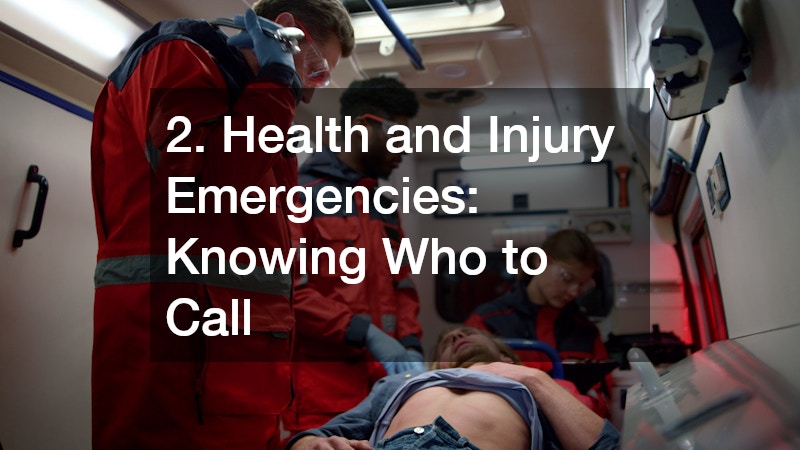
Accidents can happen anywhere—including at home. Whether it’s a fall, a sprain, or sudden chest pain, it’s crucial to know which professional to call based on the severity of the situation.
a. When to Head Straight to the Emergency Room
Not all medical concerns can wait. Call or visit the emergency room if you or someone in your household experiences:
-
Severe bleeding or deep cuts that won’t stop.
-
Chest pain, difficulty breathing, or loss of consciousness.
-
Head or spinal injuries.
-
Electrical burns, poisoning, or suspected fractures.
Delaying a visit to the emergency room can lead to serious complications. Emergency physicians are equipped to handle life-threatening conditions that go beyond the scope of clinics or home remedies.
b. When to Visit an Orthopedic Clinic
If the injury involves your bones, joints, or muscles but isn’t life-threatening, visiting an orthopedic clinic is the better choice. These clinics specialize in diagnosing and treating conditions such as:
-
Fractures and sprains.
-
Dislocated joints.
-
Tendon or ligament tears.
-
Chronic pain in knees, shoulders, or hips.
Unlike general practitioners, orthopedic specialists offer advanced imaging and treatment options like braces, casts, and physical therapy to speed up recovery.
c. When Chiropractors or Massage Therapists Can Help
Not every ache requires a hospital visit. For muscle tension, mild back pain, or postural problems, chiropractors and massage therapists provide relief and support healing.
-
Chiropractors realign the spine to alleviate pain from poor posture, strain, or minor injuries.
-
A massage therapist helps improve circulation, reduce inflammation, and relax tight muscles after intense physical activity.
However, if the pain follows a severe fall, car accident, or bone injury, always visit an orthopedic clinic first to rule out fractures before seeking chiropractic or massage therapy.
3. Dental Emergencies: When Tooth Pain Becomes Serious
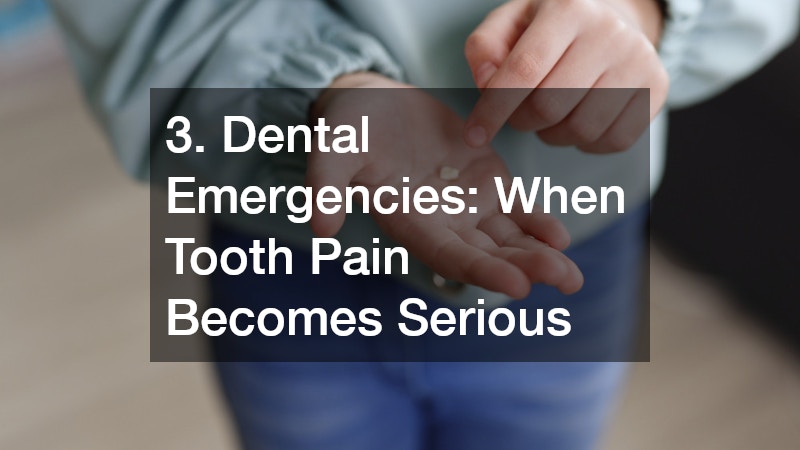
Dental issues can quickly turn into severe emergencies if left untreated. A throbbing toothache or swollen gums may seem minor, but they could indicate infection or nerve damage.
When to Seek Immediate Tooth Extraction
Here are clear signs you may need urgent tooth extraction:
-
Intense, unrelenting tooth pain.
-
Facial swelling or fever due to infection.
-
Cracked, broken, or loose teeth from trauma.
-
Bleeding that won’t stop after injury or dental procedure.
Delaying a tooth extraction when infection is present can lead to abscesses or spread bacteria to other parts of the body. Emergency dentists can provide same-day extractions and pain management to prevent complications.
Pro tip: Prevent dental emergencies with regular cleanings, X-rays, and prompt attention to any signs of decay or damage.
4. Household Hazards: Mold, Pests, and Mosquitoes
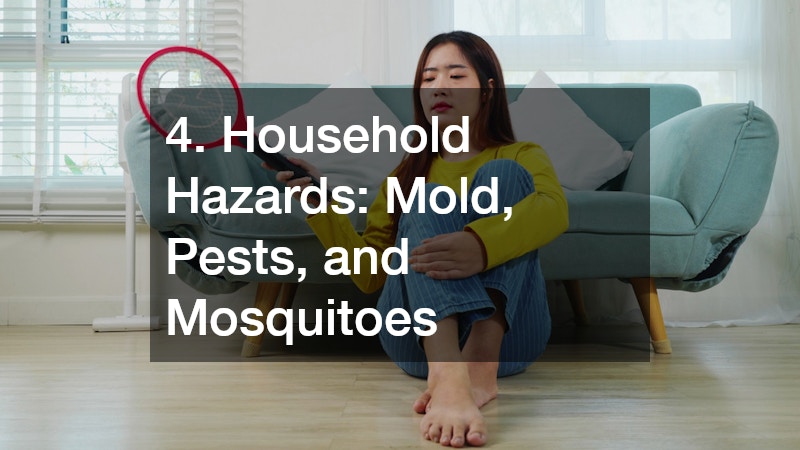
Health emergencies aren’t always caused by injuries—they can also come from the environment inside your home. Mold growth, pest infestations, and mosquitoes are common issues that can compromise your family’s health if not treated promptly.
a. Mold Problems That Require Professional Remediation
Mold can thrive anywhere moisture is present—under sinks, inside walls, or around windows. Some species, like black mold, release spores that trigger allergies and respiratory problems.
Signs you need professional mold remediation include:
-
Persistent musty smells in rooms.
-
Visible mold patches on walls, ceilings, or furniture.
-
Health symptoms like sneezing, coughing, or skin irritation.
While cleaning visible mold may seem effective, it often returns if the root cause (like a leak) isn’t fixed. Mold remediation experts use industrial-grade equipment to detect moisture sources and safely eliminate mold without spreading spores throughout your home.
b. When to Call Pest Control Experts
A single ant trail or mouse sighting might not feel like an emergency, but infestations can quickly spiral out of control. Pests spread disease, damage property, and contaminate food.
Call pest control services if you notice:
-
Repeated sightings of rodents or insects.
-
Chewed wires, droppings, or gnawed packaging.
-
Strange noises in walls or ceilings.
Professionals use targeted treatments to eliminate infestations safely. Many also provide preventive measures—like sealing entry points and offering maintenance plans—to keep your home pest-free year-round.
c. The Role of Mosquito Control in Home Health
Mosquitoes aren’t just nuisances; they can carry serious diseases like dengue, malaria, and Zika virus. If you’re constantly battling these insects despite repellents, it’s time to call for mosquito control services.
Professionals assess your property for breeding sites, treat standing water, and apply long-lasting solutions that prevent eggs from hatching. This proactive approach is far more effective than relying solely on sprays or citronella candles.
To keep mosquitoes away:
-
Eliminate stagnant water from gutters and flowerpots.
-
Install window screens.
-
Schedule regular mosquito control treatments during rainy seasons.
5. Allergies, Skin Reactions, and When to Call Dermatologists
Skin problems can develop suddenly and escalate quickly. While some rashes and irritations are mild, others can signal serious underlying conditions or infections.
When Skin Issues Signal an Emergency
Call or visit dermatologists if you experience:
-
Severe, itchy rashes spreading rapidly.
-
Painful blisters or open sores.
-
Unexplained skin discoloration or swelling.
-
Signs of infection, such as pus or warmth around a wound.
Dermatologists can diagnose allergic reactions, infections, eczema, and other conditions requiring prescription treatment. Over-the-counter creams may provide temporary relief, but professional care ensures proper diagnosis and long-term management.
6. Natural Disasters and Environmental Emergencies
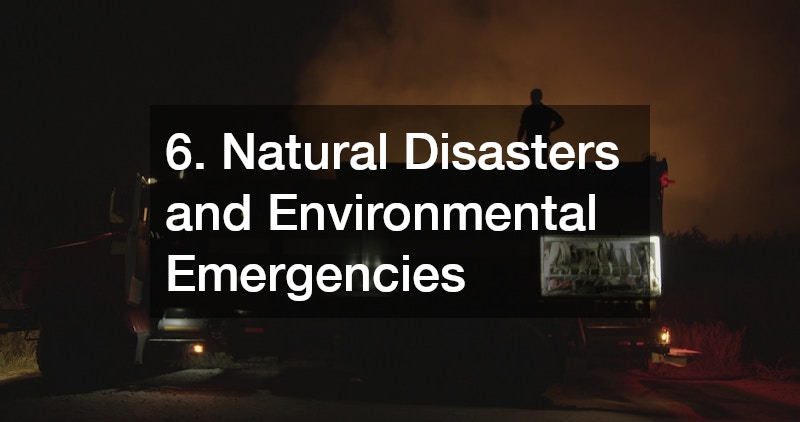
Certain emergencies—like floods, storms, or fires—can threaten both your home and safety. Knowing which experts to call immediately can prevent further damage.
Preparing and Reacting the Right Way
After a natural disaster:
-
Call electricians if you suspect wiring damage or power surges.
-
Contact plumbers for burst pipes or sewage backup.
-
Hire restoration companies for water extraction, drying, and structural repair.
Delays in addressing these issues can lead to mold growth, electrical fires, or foundation problems. Combine prompt professional intervention with an emergency preparedness plan for your household.
7. Prevention is Better Than Cure: Building a Home Emergency Contact List
Preparation can mean the difference between a quick fix and a full-blown crisis. Having a home emergency contact list ensures you can act immediately without wasting time searching for help.
Essential Numbers Every Homeowner Should Have Ready
Your emergency list should include:
-
AC companies – for HVAC repairs and maintenance.
-
Pest control services – for rodent or insect infestations.
-
Mosquito control professionals – for mosquito-prone areas.
-
Mold remediation experts – for leaks and humidity issues.
-
Orthopedic clinic – for sprains, fractures, and joint pain.
-
Chiropractors and massage therapist – for pain management and recovery.
-
Dermatologists – for skin emergencies and infections.
-
Dentists – for urgent tooth extraction or oral care.
-
Emergency room – for life-threatening medical situations.
Keep this list in a visible area like the refrigerator or your smartphone contacts, and update it every year. Knowing who to call minimizes panic and ensures timely response during critical moments.
8. Quick Reference Guide: DIY vs. Call the Pros
When faced with an emergency, quick judgment matters. Here’s a simple guide to help you decide when to handle things yourself and when to call professionals.
| Situation | DIY Solution | Call the Pros |
|---|---|---|
| Minor back pain | Rest, ice, and gentle stretching | Chiropractors or massage therapist |
| Toothache | Rinse mouth, apply pain relievers | Dentist for tooth extraction |
| Moldy bathroom tiles | Clean with mild detergent | Mold remediation specialists |
| Few mosquitoes | Use repellents, nets | Professional mosquito control |
| Mild rash | OTC creams | Dermatologists for severe or spreading rash |
| No cool air from AC | Check filters and thermostat | AC companies for system failure |
| Rodent sighting | Store-bought traps | Pest control services for infestations |
| Minor sprain | Rest and compression | Orthopedic clinic for persistent swelling |
Conclusion: Knowing When to Call for Help
Emergencies can happen anytime, and while some issues are manageable with DIY fixes, others demand professional expertise. Whether it’s contacting AC companies for a broken unit, calling mold remediation experts to stop toxic growth, or visiting dermatologists for severe skin reactions, recognizing when to get help can prevent danger and expensive damage.
Investing in preventive care—like regular HVAC checkups, pest inspections, and medical wellness visits—reduces the risk of crises. The key is preparedness: know your local providers, keep their numbers handy, and never hesitate to call the pros when your safety, comfort, or health is at stake.

